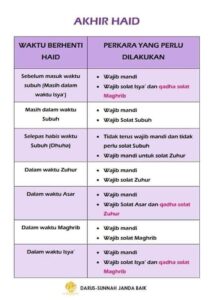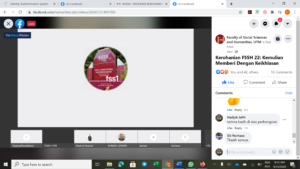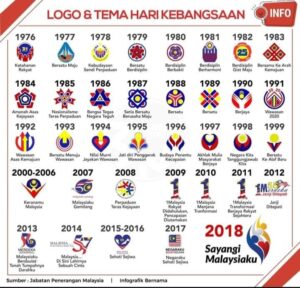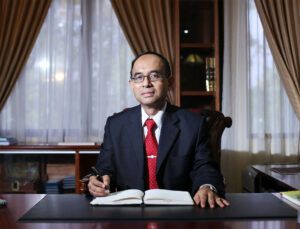The launch of FSSHEART 20 is launched today. HEART stands for “Happy, Empathy, Appreciate, Responsible, Trust”. Datuk Dr Nurhafizah Musa was invited as the speaker to share her wisdom and knowledge about Husnuzzon.
I don’t know her personally but I always feel that she is unique. I know that I could never be like her but I aim to at least try to imitate her attitudes and behavior (which is a struggle on my part). She is a role model. Indeed.
…………………………………………………………………………………………………..
Qalbun Saleem encompasses attitudes and behaviors essential for relationships, leadership and such. What really important is what and to what extent we are going (willing) to take action to change for improving our attitudes and behaviors. That is the most challenging part. We might be complacent with the things that we are so used to do through certain ways. In this case, it requires and demands us to change the ways we are doing things. How willing we are to change the habits, culture and such?
We need to rely on the guidance from Allah. We need to seek for Allah’s guidance. But first, we need to know how to change as well and be clear about the definition and direction of our action.
For example, we need to know the definition of Husnuzzon (attitudes and how we look at something of other person in positive manner that satisfying/fulfilling or in Malay = sangka baik). It involves training to do reflection (muhasabah) and soul cleansing (tazkiyatul nafs). It involves cognitive and emotional aspects. If we think a negative event as a problem, we will be a problem maker/enhancer. If we think a negative event as a solution or we think a problem as an opportunity to invent something better, we will be a problem solver.
In short, if we think a problem as a problem, we will not be able to move forward to think about the possible solutions. If we think about a problem as an opportunity for us to solve a problem, we will be able to move forward solving a problem. It is how we look at a problem from different perspective matters.
Al-Hujurat (49): 12
O believers! Avoid many suspicions, ˹for˺ indeed, some suspicions are sinful. And do not spy, nor backbite one another. Would any of you like to eat the flesh of their dead brother? You would despise that!1 And fear Allah. Surely Allah is ˹the˺ Accepter of Repentance, Most Merciful.
It is undeniable that we have negative thoughts about others. Sometimes we have this in our mind that come across once a while. But those negative thoughts would be dangerous once it is translated in our behavior (verbal or/and non-verbal). So, it is really important to identify the negative thoughts and try to eradicate it before it is translated into behavior. This is not easy. It is a constant battle. This is what I feel. So, that might explain why I have few friends because I am afraid that I might be influenced by them unconsciously. The more the merrier? Not in my case.
How can negative thoughts become sin? As long as it remains in our mind, it is not sinful. But once it is translated into verbal or action, for example, we tell our thoughts about someone (negative) to another person, our initial negative thoughts are translated into verbal action, thus it becomes sinful. We are accountable towards it.
But, another important thing that we have to remind ourselves is to have husnuzzon towards Allah. Sometimes we overlook the fact that we are at present situation because of Him. It is not due to other person’s decision. For example, if we perceive getting a promotion is by designed, it is as if we are in full control of what we can achieve and gain based on our efforts whereas it is the fact that each of us have different capacity and capability given by Allah to perform, achieve and gain whatever things exist in this world either professional status and such.
Of course we should do our best, give the best effort and such. But the One who gives the best solution, guidance and all is Allah. So, it is our responsibility to choose to remain negative or positive. I know it is difficult. This is my personal battle.
Some of the tips that I get from this session is
- Change our attitudes. Remind ourselves that person might be better than you in things that Allah Knows better. “Force” ourselves to change our negative thoughts into positive thoughts.
- Inculcate the culture of Husnuzzon
There are five levels of the culture of Husnuzzon:
- Taáruf level
- Tafahum level
- Takaful level
- Tanasuh level
- Taroodhi level
First: Taáruf level
- Knowing me, knowing you
- Getting to know each other is important at personal level.
Second: Tafahum level
- Emphatize – putting ourselves in the other’s situation.
- Imagine if we are in the other person’s situation, we need to give ourselves opportunity to understand other person
Third: Takaful level
- Supporting each other.
- Each of us have our own strengths and difficulties.
- Acknowledge and appreciate other contribution
Fourth: Tanasuh level
- Reminding each other, such as giving advice and such.
- Learn to appreciate people’s advice.
Fifth: Taroodhi level
- Open-minded towards what we have and others have (not being envious)
- Be happy for what others have in terms of position and such without feeling envious
First level: Husnuzzon
Second level: Emphatic and love for good things for others
Third level: Ithar (put other’s needs first above our own needs)
Question ask by an audience (to appreciate the ones who asked the question, I put the original question without translating)
Question: Sekiranya ada hamba Allah menceritakan sesuatu yg tidak benar tentang kita, perlu ke kita bersemuka dan membetulkan keadaan atau perlu ke kita redha dan membiarkan sahaja?
Answer: We need to think about the benefits and negative consequences if we confront the person saying bad things about us. But if it is about our right, we can confront the perpetrator to rectify the matter. We have to do it with hikmah (Note: This is not easy to be done by me).









